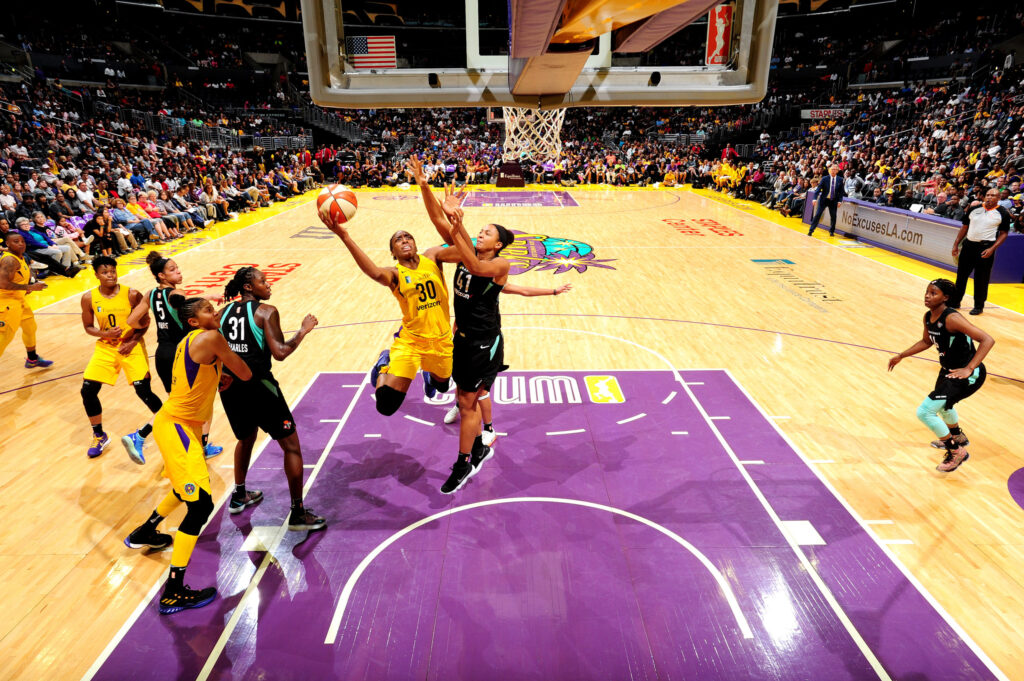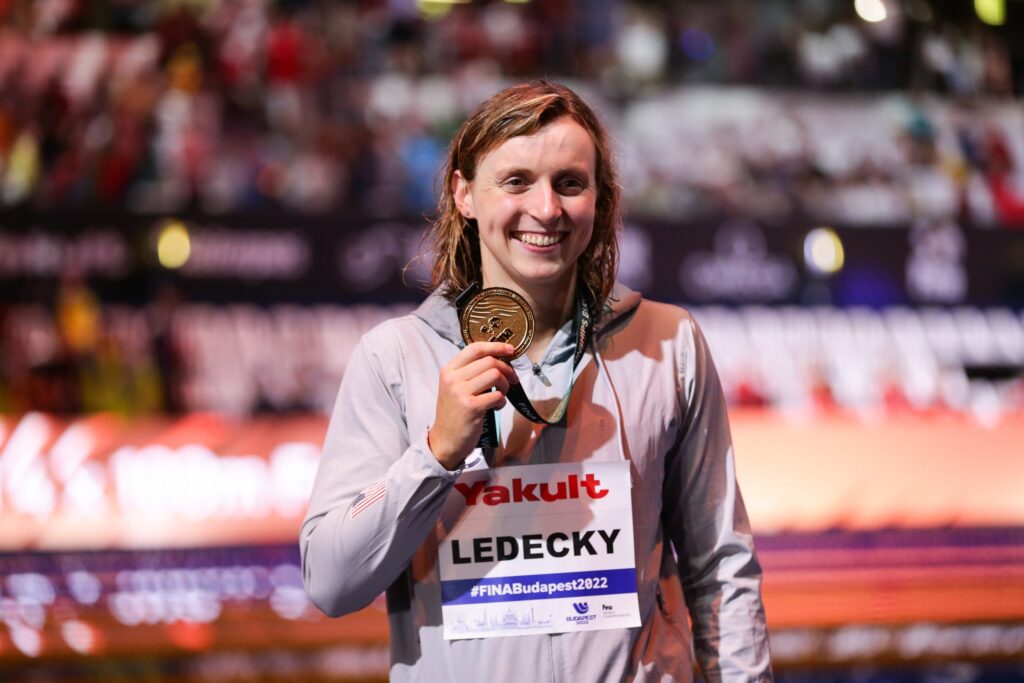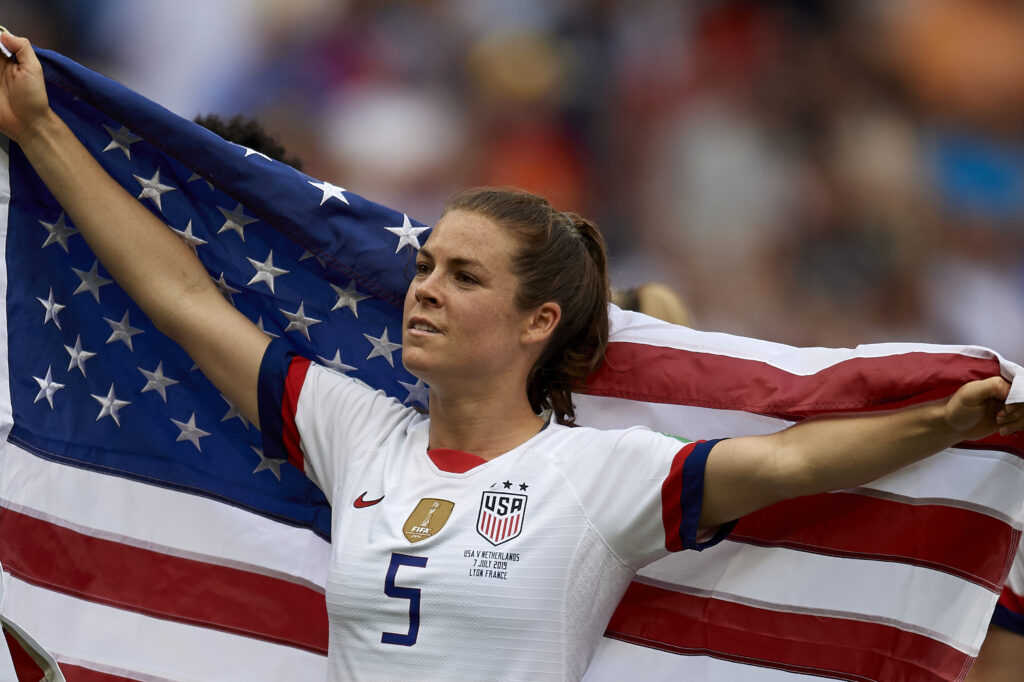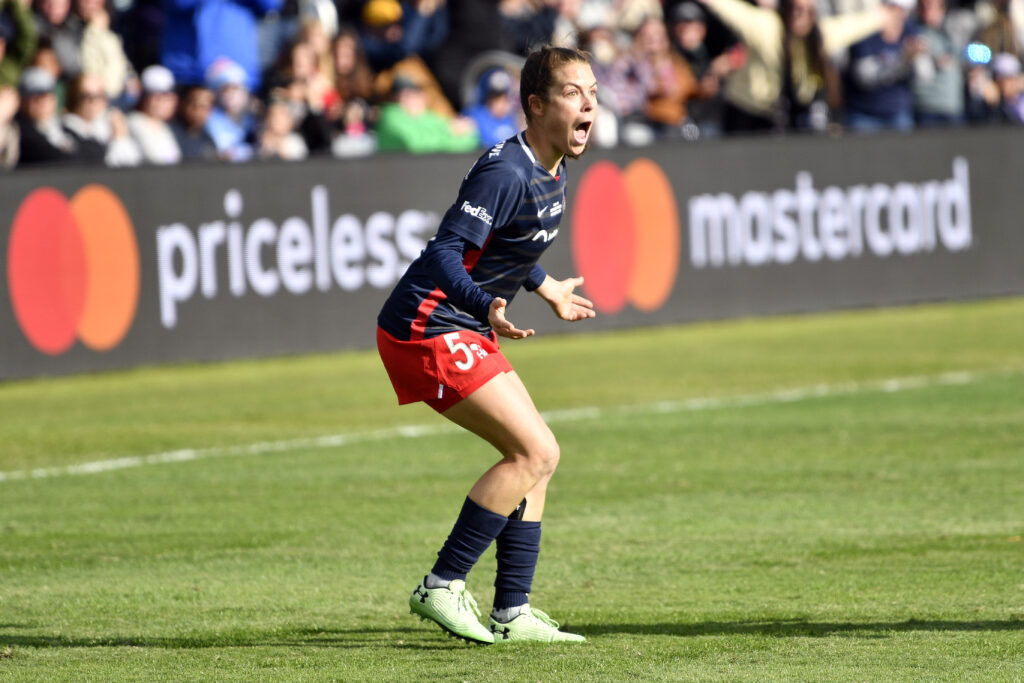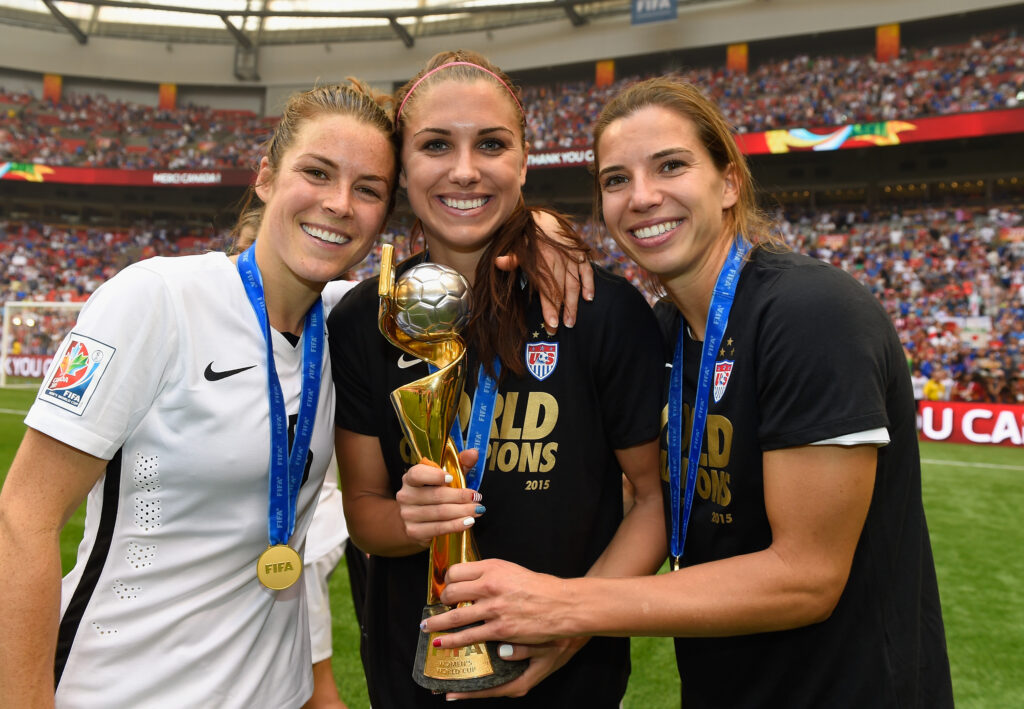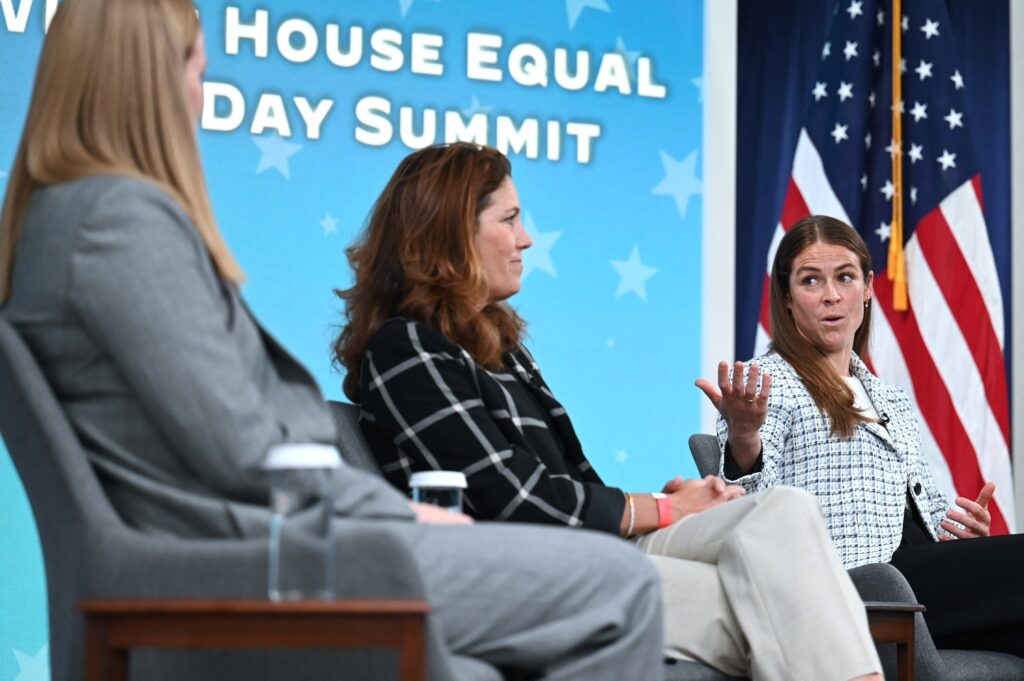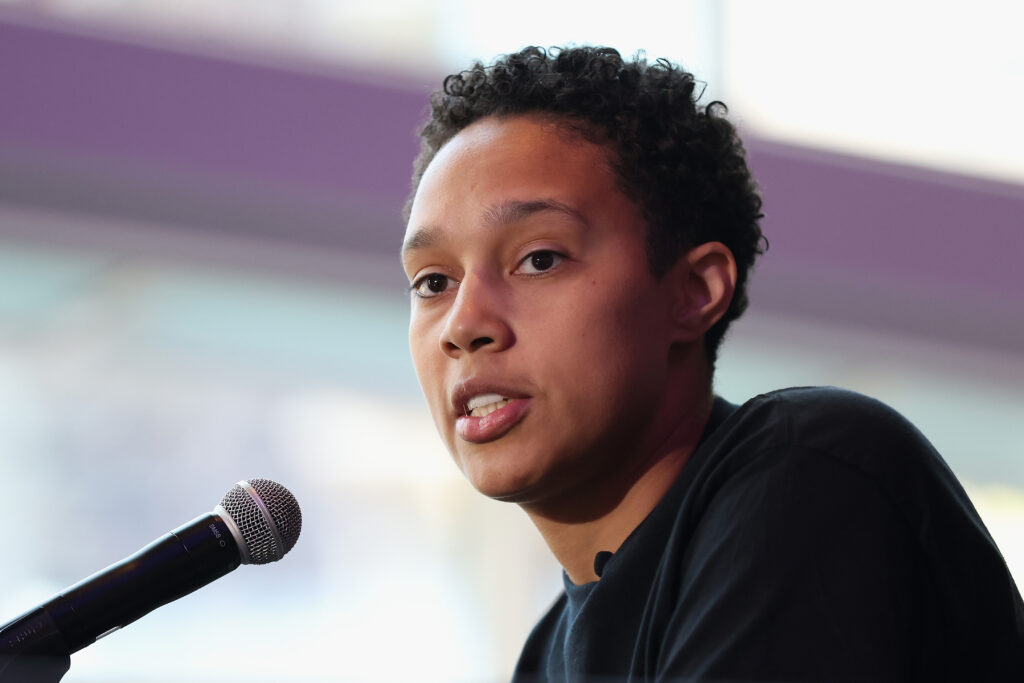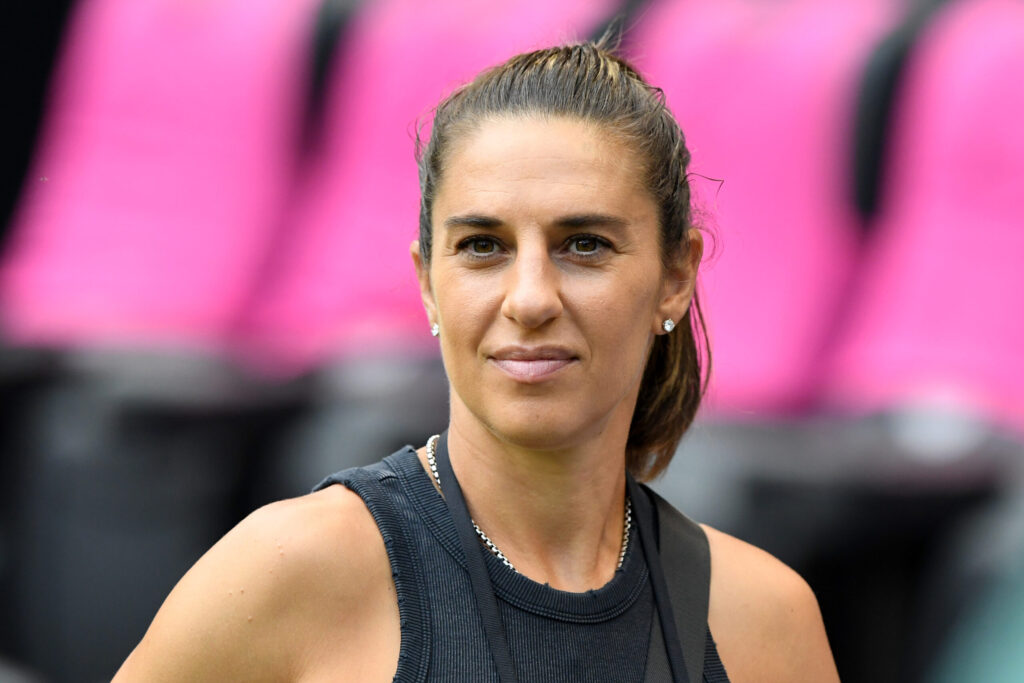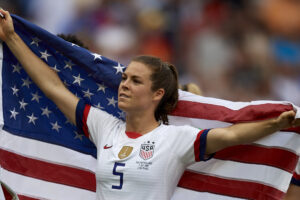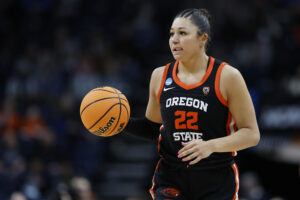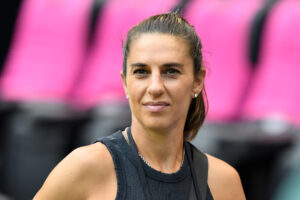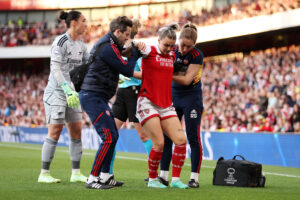Nneka Ogwuimke has always put in the work. Anyone who has followed the career of the six-time WNBA All Star, 2016 MVP and WNBA Champion knows that Nneka’s game is the epitome of hustle and technique. But in the past couple of years, it’s been her off-court work that has been the most impactful.
As President of the WNBA Players Association, Nneka helped the players sign a historic Collective Bargaining Agreement in early 2020. With a 53% increase in total cash compensation, upgrades to travel and living accommodations, and new maternity/family planning benefits, the deal has been touted as symbolizing “a radical shift” in how our country values women’s sports. For Nneka (aka “Madame President”) the experience of leading the league’s players to this historic agreement was invaluable practice for guiding them through the rest of what 2020 had in store.
BREAKING: @CathyEngelbert from the @WNBA announces a new landmark deal for female athletes. “We’re hoping to lift, not just women in sports and women in basketball, but women in society.”@RobinRoberts@Nnemkadi30 https://t.co/n0zPNGp6Sz pic.twitter.com/V6eBw2wH3S
— Good Morning America (@GMA) January 14, 2020
As WNBPA President, Nneka’s top objective is player engagement.
“Up until the last CBA, the [player] participation was abysmal,” she laments to Kelley O’Hara on the JWS podcast, “That was something I knew as President that I wanted to change.”
Luckily her relentlessness on the court translated well as she and her executive committee hounded players to participate in Zoom calls and reply to emails throughout the year of negotiations. They wanted to hear from every player about their individual experience and needs. This “badgering” approach led to widespread buy-in and a sense of cohesion among the player group, which Nneka believes is even more important than the relationship between the league and players.
“One thing that can’t happen is disjointedness among the players,” she tells O’Hara, “When you link up, they don’t have an option.”
Playing the 2020 season against the backdrop of an ongoing pandemic and the George Floyd protests, the now-unified players gave Nneka two clear objectives in negotiating a bubble (“Wubble”) season with the league: they wanted to earn 100% of their salaries and they wanted to amplify their voices on social justice. The league agreed to meet them on both fronts.
The WNBA Wubble season was historic for many reasons. The league played a 22-game season and a full post-season over 14 weeks with zero positive Covid-19 cases. Fans witnessed a new league record of 83.1 average points per game, a new single game assist record (Courtney Vandersloot’s 18), a new playoff game assist record (Sue Bird’s 16), and a new all-time rebound record (Sylvia Fowles’ 3,360). In other words, players showed up, and their audience did as well, with television viewership up 68% from the year before.
But what Nneka is most proud of is how the players used their platform to advocate for social justice. Several initiatives, including messaging around #SayHerName and Black Lives Matter, were incorporated right from the start. Other decisions had to be made in real time as events unfolded outside the Wubble, such as wearing pre-game “Vote Warnock” shirts to support Reverend Raphael Warnock in his campaign against sitting Georgia Senator and WNBA team co-owner Kelly Loeffler, who publicly critiqued the league’s support of Black Lives Matter. (Note: Warnock and Loeffler will be heading to a run-off election in January.)
WNBA players are wearing "Vote Warnock" shirts today.
— Yahoo Sports (@YahooSports) August 4, 2020
Raphael Warnock is running against Atlanta Dream co-owner Kelly Loeffler, who opposes the Black Lives Matter movement.
(via @PhoenixMercury, @chicagosky) pic.twitter.com/YvB5e9PIq5
Most poignantly, the league had to decide whether they would join their fellow athletes in boycotting a night of games after Jacob Blake was shot seven times in the back by a police officer. Fortunately, the league had a leader who had spent the last year and a half establishing a culture of listening to all voices and then acting in unity. After sorting through a sea of emotions about what they should do, the players opted not to play. They also postponed all games the following day, declaring it a “Day of Reflection.” The image from that afternoon of every single player gathered in the gym, standing shoulder to shoulder with arms linked, is an undeniable statement of their solidarity.
Games resume tonight. The fight for justice and equality never stops. pic.twitter.com/OQVrkEIiJR
— WNBA (@WNBA) August 28, 2020
For Nneka, the WNBA’s long track record of progressive political activism is easy to explain.
“We’re 70% Black women. It’s just that simple really,” she tells O’Hara on the podcast. “We are, unfortunately, inherently political. We don’t choose to be, it just is. That authenticity drives our action.”
As impressive as the on and off-court accomplishments of the 2020 Wubble season were, it also took a significant toll. Like many of her colleagues, Nneka was emotionally and physically depleted by the end.
“I wasn’t holding up,” she admits to O’Hara, “And I think it’s important for people to know that, because in a world where we’re looking for a release and an escape, people need to understand what these women and men did to put a game on your television. It was hard.”
But they made it through, thanks in large part to the highly-engaged and cohesive culture Nneka began building way before the craziness of 2020 hit. Her innate knack for leadership isn’t displayed in having the biggest voice or by bullishly standing her ground. It’s evidenced in her commitment to listening to ALL voices (even those sitting on the opposite side of the table), recognizing common goals, being comfortable with nuance, and finding creative solutions that serve all stakeholders.
Nneka Ogwumike’s newest nickname may have started in jest, but in a year when our nation is selecting its leaders, we think “Madame President” has a really nice ring to it.
